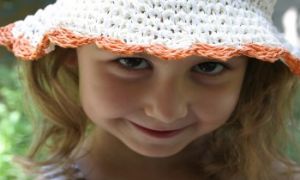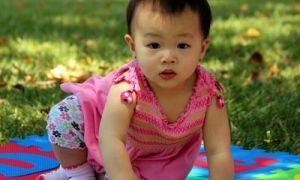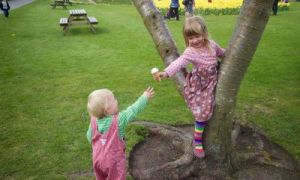Developmental milestones are a set of functional skills or age-specific tasks that most children can do at a certain age range as they grow and develop. The following provides the developmental milestones from 2 months to 5 years old.
What Are Developmental Milestones
Child development refers to how a child becomes able to do more complex things as they get older and reach milestones in how they play, learn, speak, act, and move. Developmental milestones include:
- Gross motor skills - using large groups of muscles to sit, stand, walk, run, etc., keeping balance and changing positions
- Fine motor skills - using hands to be able to eat, draw, dress, play, write and do many other things
- Language skills - speaking, using body language and gestures, communicating, and understanding what others say
- Cognitive skills - thinking skills including learning, understanding, problem-solving, reasoning, and remembering
- Social skills - interacting with others, having relationships with family, friends, and teachers, cooperating and responding to the feelings of others.
2 Months Milestones
- Social/Emotional Milestones
• Calms down when spoken to or picked up
• Looks at your face
• Seems happy to see you when you walk up to her
• Smiles when you talk to or smile at her - Language/Communication Milestones
• Makes sounds other than crying
• Reacts to loud sounds - Cognitive Milestones (learning, thinking, problem-solving)
• Watches you as you move
• Looks at a toy for several seconds - Movement/Physical Development Milestones
• Holds head up when on tummy
• Moves both arms and both legs
• Opens hands briefly
4 months Milestone
- Social/Emotional Milestones
• Smiles on his own to get your attention
• Chuckles (not yet a full laugh) when you try to make her laugh
• Looks at you, moves, or makes sounds to get or keep your attention
Language/Communication Milestones
• Makes sounds like “oooo”, “aah” (cooing)
• Makes sounds back when you talk to him
• Turns head towards the sound of your voice
Cognitive Milestones (learning, thinking, problem-solving)
• If hungry, open mouth when she sees breast or bottle
• Looks at his hands with interest
• Movement/Physical Development Milestones
• Holds head steady without support when you are holding her
• Holds a toy when you put it in his hand
• Uses her arm to swing at toys
• Brings hands to mouth
• Pushes up onto elbows/forearms when on tummy
6 Months Milestones
- Social/Emotional Milestones
• Knows familiar people
• Likes to look at self in a mirror
• Laughs - Language/Communication Milestones
• Takes turns making sounds with you
• Blows “raspberries” (sticks tongue out and blows)
• Makes squealing noises
• Cognitive Milestones (learning, thinking, problem-solving
• Puts things in her mouth to explore them
• Reaches to grab a toy he wants
• Closes lips to show she doesn’t want more food
Movement/Physical Development Milestones
• Rolls from tummy to back
• Pushes up with straight arms when on tummy
• Leans on hands to support himself when sitting
9 Months Milestones
- Social/Emotional Milestones
• Is shy, clingy, or fearful around strangers
• Shows several facial expressions, like happy, sad, angry, and surprised
• Looks when you call her name
• Reacts when you leave (looks, reaches for you, or cries)
• Smiles or laughs when you play peek-a-boo - Language/Communication Milestones
• Makes a lot of different sounds like “mamamama” and “bababababa”
• Lifts arms up to be picked up
• Cognitive Milestones (learning, thinking, problem-solving)
• Looks for objects when dropped out of sight (like his spoon or toy)
• Bangs two things together - Movement/Physical Development Milestones
• Gets to a sitting position by herself
• Moves things from one hand to her other hand
• Uses fingers to “rake” food towards himself
• Sits without support
1 Year Milestones
- Social/Emotional Milestones
• Plays games with you, like pat-a-cake
• Language/Communication Milestones
• Waves “bye-bye”
• Calls a parent “mama” or “dada” or another special name
• Understands “no” (pauses briefly or stops when you say it) - Cognitive Milestones (learning, thinking, problem-solving)
• Puts something in a container, like a block in a cup
• Looks for things he sees you hide, like a toy under a blanket - Movement/Physical Development Milestones
• Pulls up to stand
• Walks, holding on to furniture
• Drinks from a cup without a lid, as you hold it
• Picks things up between thumb and pointer finger, like small bits of food
15 Months Milestones
- Social/Emotional Milestones
- • Copies other children while playing, like taking toys out of a container when another child does
• Shows you an object she likes
• Claps when excited
• Hugs stuffed doll or another toy
• Shows you affection (hugs, cuddles, or kisses you)
Language/Communication Milestones
• Tries to say one or two words besides “mama” or “dada,” like “ba” for ball or “da” for dog
• Looks at a familiar object when you name it
• Follows directions given with both a gesture and words. For example, he gives you a toy when you hold out your hand and say, “Give me the toy.”
• Points to ask for something or to get help - Cognitive Milestones (learning, thinking, problem-solving)
• Tries to use things the right way, like a phone, cup, or book
• Stacks at least two small objects, like blocks
Movement/Physical Development Milestones
• Takes a few steps on his own
• Uses fingers to feed herself some food
18 Months Milestones
- Social/Emotional Milestones
• Moves away from you, but looks to make sure you are close by
• Points to show you something interesting
• Puts hands out for you to wash them
• Looks at a few pages in a book with you
• Helps you dress him by pushing arm through sleeve or lifting up foot - Language/Communication Milestones
• Tries to say three or more words besides “mama” or “dada”
• Follows one-step directions without any gestures, like giving you the toy when you say, “Give it to me.” - Cognitive Milestones (learning, thinking, problem-solving)
• Copies you doing chores, like sweeping with a broom
• Plays with toys in a simple way, like pushing a toy car - Movement/Physical Development Milestones
• Walks without holding on to anyone or anything
• Scribbles
• Drinks from a cup without a lid and may spill sometimes
• Feeds herself with her fingers
2 Years Milestones
- Social/Emotional Milestones
• Notices when others are hurt or upset, like pausing or looking sad when someone is crying
• Looks at your face to see how to react in a new situation - Language/Communication Milestones
• Points to things in a book when you ask, like “Where is the bear?”
• Says at least two words together, like “More milk.”
• Points to at least two body parts when you ask him to show you
• Uses more gestures than just waving and pointing, like blowing a kiss or nodding yes - Cognitive Milestones (learning, thinking, problem-solving)
• Holds something in one hand while using the other hand; for example, holding a container and taking the lid off
• Tries to use switches, knobs, or buttons on a toy
• Plays with more than one toy at the same time, like putting toy food on a toy plate - Movement/Physical Development Milestones
• Kicks a ball
• Runs
• Walks (not climbs) up a few stairs with or without help
• Eats with a spoon
30 Months Milestones
- Social/Emotional Milestones
• Plays next to other children and sometimes plays with them
• Shows you what she can do by saying, “Look at me!”
• Follows simple routines when told, like helping to pick up toys when you say, “It’s clean-up time.” - Language/Communication Milestones
• Says about 50 words
• Says two or more words, with one action word, like “Doggie run”
• Names things in a book when you point and ask, “What is this?”
• Says words like “I,” “me,” or “we” - Cognitive Milestones (learning, thinking, problem-solving)
• Uses things to pretend, like feeding a block to a doll as if it were food
• Shows simple problem-solving skills, like standing on a small stool to reach something
• Follows two-step instructions like “Put the toy down and close the door.”
• Shows he knows at least one colour, like pointing to a red crayon when you ask, “Which one is red?” - Movement/Physical Development Milestones
• Uses hands to twist things, like turning doorknobs or unscrewing lids
• Takes some clothes off by himself, like loose pants or an open jacket
• Jumps off the ground with both feet
• Turns book pages, one at a time, when you read to her
3 Years Milestones
- Social/Emotional Milestones
• Calms down within 10 minutes after you leave her, like at a childcare drop off
• Notices other children and joins them to play - Language/Communication Milestones
• Talks with you in the conversation using at least two back-and-forth exchanges
• Asks “who,” “what,” “where,” or “why” questions, like “Where is mommy/daddy?”
• Says what action is happening in a picture or book when asked, like “running,” “eating,” or “playing”
• Says the first name, when asked
• Talks well enough for others to understand, most of the time - Cognitive Milestones (learning, thinking, problem-solving)
• Draws a circle, when you show him how
• Avoids touching hot objects, like a stove, when you warn her - Movement/Physical Development Milestones
• Strings items together, like large beads or macaroni
• Puts on some clothes by himself, like loose pants or a jacket
• Uses a fork
4 Years Milestones
- Social/Emotional Milestones
• Pretends to be something else during play (teacher, superhero, dog)
• Asks to go play with children if none are around, like “Can I play with Alex?”
• Comforts others who are hurt or sad, like hugging a crying friend
• Avoids danger, like not jumping from tall heights at the playground
• Likes to be a “helper”
• Changes behaviour based on where she is (place of worship, library, playground) - Language/Communication Milestones
• Says sentences with four or more words
• Says some words from a song, story, or nursery rhyme
• Talks about at least one thing that happened during his day, like “I played soccer.”
• Answers simple questions like “What is a coat for?” or “What is a crayon for?” - Cognitive Milestones (learning, thinking, problem-solving)
• Names a few colours of items
• Tells what comes next in a well-known story
• Draws a person with three or more body parts - Movement/Physical Development Milestones
• Catches a large ball most of the time
• Serves himself food or pours water, with adult supervision
• Unbuttons some buttons
• Holds crayon or pencil between fingers and thumb (not a fist)
5 Years Milestones
- Social/Emotional Milestones
• Follows rules or takes turns when playing games with other children
• Sings, dances, or acts for you
• Does simple chores at home, like matching socks or clearing the table after eating - Language/Communication Milestones
• Tells a story she heard or made up with at least two events. For example, a cat was stuck in a tree and a firefighter saved it
• Answers simple questions about a book or story after you read or tell it to him
• Keeps a conversation going with more than three back-and-forth exchanges
• Uses or recognizes simple rhymes (bat-cat, ball-tall) - Cognitive Milestones (learning, thinking, problem-solving)
• Counts to 10
• Names some numbers between 1 and 5 when you point to them
• Uses words about time, like “yesterday,” “tomorrow,” “morning,” or “night”
• Pays attention for 5 to 10 minutes during activities. For example, during story time or making arts and crafts (screen time does not count)
• Writes some letters in her name
• Names some letters when you point to them - Movement/Physical Development Milestones
• Buttons some buttons
• Hops on one foot
Reference:
Developmental Milestones, CDC


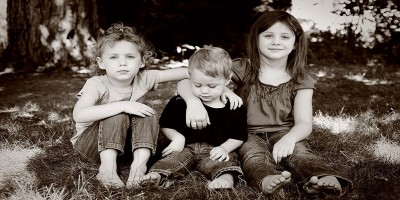
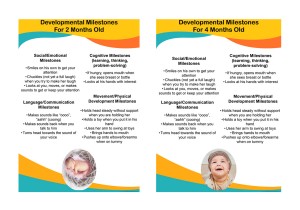
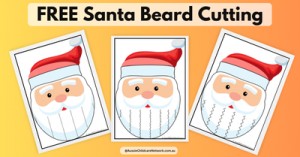
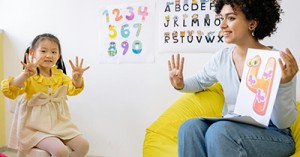
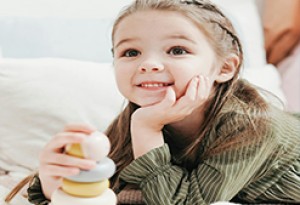
 Toddlers have a greater understanding of the world around them by this stage. Their cognitive development (also known as intellectual development and thinking skills) continues
Toddlers have a greater understanding of the world around them by this stage. Their cognitive development (also known as intellectual development and thinking skills) continues Infants begin to develop trust when parents begin to fulfil their needs. Such as changing an infant's nappy when needed, feeding on request and holding
Infants begin to develop trust when parents begin to fulfil their needs. Such as changing an infant's nappy when needed, feeding on request and holding Beginning at birth the construction of thought processes, such as memory, problem solving, exploration of objects etc, is an important part of an infant’s cognitive
Beginning at birth the construction of thought processes, such as memory, problem solving, exploration of objects etc, is an important part of an infant’s cognitive Toddlers want to do more on their own and do not like it when you begin to establish limits on their behaviour. Tantrums can become
Toddlers want to do more on their own and do not like it when you begin to establish limits on their behaviour. Tantrums can become Your preschooler is now able to focus their attention more accurately and is less influenced by distractions. The intensity of questions increase as your child
Your preschooler is now able to focus their attention more accurately and is less influenced by distractions. The intensity of questions increase as your child John Dewey is often seen as the proponent of learning by doing – rather than learning by passively receiving. He believed that each child was active,
John Dewey is often seen as the proponent of learning by doing – rather than learning by passively receiving. He believed that each child was active, Toddler advance and gains new skills in Gross Motor Development milestones achieved throughout earlier years. Co-ordination and challenges that could not be performed before such
Toddler advance and gains new skills in Gross Motor Development milestones achieved throughout earlier years. Co-ordination and challenges that could not be performed before such Erik Erikson developed a psychosocial theory to understand how we each develop our identities through eight stages of psychosocial development from infancy to adulthood. The
Erik Erikson developed a psychosocial theory to understand how we each develop our identities through eight stages of psychosocial development from infancy to adulthood. The At this point preschoolers begin to interact effectively with others. Play becomes more innovative and organized and “boyfriend” or “girlfriend” begins to emerge. Preschoolers have
At this point preschoolers begin to interact effectively with others. Play becomes more innovative and organized and “boyfriend” or “girlfriend” begins to emerge. Preschoolers have From now, babies begin to identify and respond to their own feelings, understanding other's feelings & needs and interact positively with others. A baby's social and
From now, babies begin to identify and respond to their own feelings, understanding other's feelings & needs and interact positively with others. A baby's social and